The BMJ Group’s first dedicated palliative and supportive care journal went live online this week, in preparation for the impending launch in April next year. Check out the new blog site here – https://stg-blogs.bmj.com/spcare/ and show your support by following the journal on Twitter and Facebook.
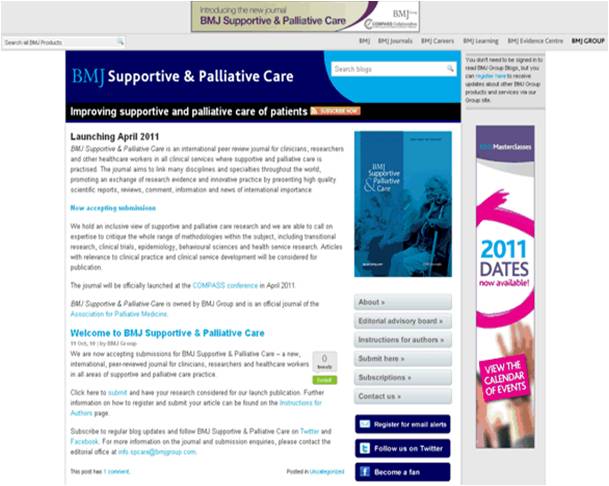
Introducing BMJ Supportive & Palliative Care
BMJ Supportive and Palliative Care is our newest, peer-reviewed journal with international reach. It aims to link many disciplines and specialties throughout the world; promoting an exchange of evidence based research and innovative practice by publishing high quality transitional research, clinical trials, epidemiology, behavioural sciences, health service research, reviews, and comment.
Following the launch in 2011, BMJ Supportive & Palliative Care will be published quarterly in print and continuously online. It will aim to target not only doctors, but different categories of clinician and healthcare workers associated with palliative medicine, specialist or generalist palliative care, supportive care, psychosocial-oncology and end-of-life care.
The journal’s broad scope makes it a relevant and important resource for palliative care specialists, as well as doctors and nurses in medical and surgical specialties including cardiology, gastroenterology, neurology, oncology, paediatrics, primary care, psychiatry, psychology, renal medicine, respiratory medicine.
A world-class editorial team, which will be lead by Dr Bill Noble, Macmillan senior lecturer in palliative medicine at the University of Sheffield and honorary consultant physician in palliative medicine at Sheffield Teaching Hospitals NHS Foundation Trust, will ensure a high standard of practice-changing research and education.
The new BMJ Supportive & Palliative Care website – scheduled to coincide with the first edition – will play an important role in the overall journal and feature all content ahead of print, as well as offering regular news updates, podcasts, blogs, polls, and eventually, interactive educational features.
Look out for more posts and updates on the BMJ Supportive & Palliative Care blog in the build up to the official launch of the journal at COMPASS, April 2011.


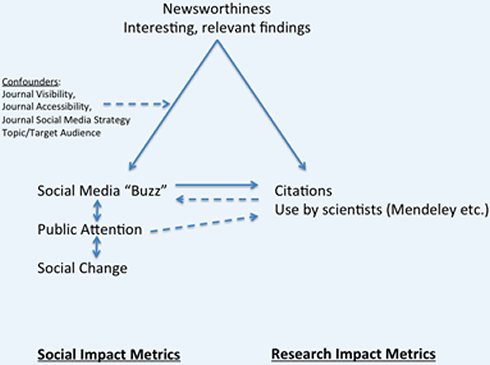
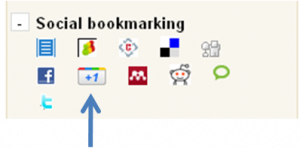 Where is it found?
Where is it found?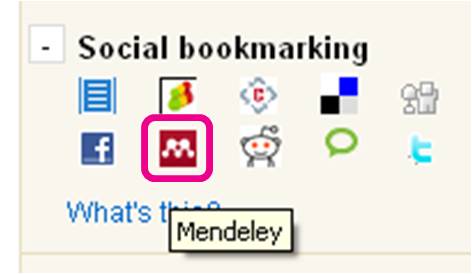
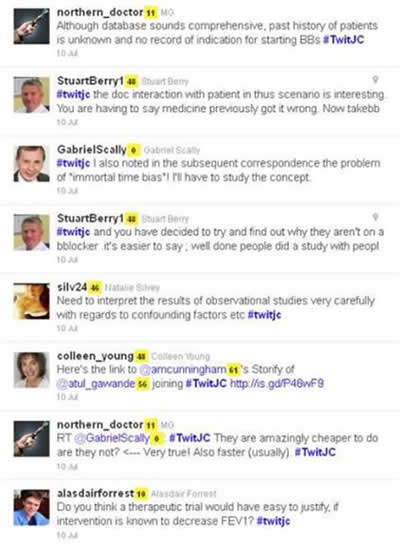
 Google started rolling out the ‘+1’ recommend button across its own portfolio and third-party web sites just a day after Twitter unveiled its new ‘follow’ button. Both releases are being viewed as direct competitors to Facebook’s popular ‘like’ button.
Google started rolling out the ‘+1’ recommend button across its own portfolio and third-party web sites just a day after Twitter unveiled its new ‘follow’ button. Both releases are being viewed as direct competitors to Facebook’s popular ‘like’ button.

